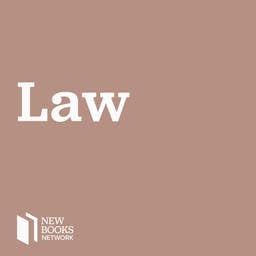Jewish law, known as halakhah, is a unique legal system that has developed over a period of nearly two millennia, across multiple continents, and in innumerable different contexts. Dealing not only with ritual, Jewish law extends to virtually every aspect of life including ethics, business, war, and sex. This Handbook highlights foundational questions about the nature of Jewish law, emphasizing what distinguishes it from other legal systems and illuminating its vitality throughout history. The Oxford Handbook of Jewish Law (Oxford UP, 2025) navigates core issues such as halakhah's authority, its interpretation, and the meaningfulness of an ancient legal system in a modern period. With contributions from an interdisciplinary cast of authors, the Handbook spans law, history, sociology, and religion. Its chapters draw from a wide range of sources, including traditional texts such as Mishnah and Talmud, rabbinical codes, and legal opinions known as responsa. Moreover, chapters addressing pressing modern issues cover the material from diverse denominational perspectives. As halakhah remains deeply woven into the fabric of Jewish life and scholarship, The Oxford Handbook of Jewish Law offers readers an in-depth understanding of this rich and enduring legal tradition. Zev Eleff is President and Professor of American Jewish history at Gratz College. Roberta Rosenthal Kwall is the Raymond P. Niro Professor at DePaul University College of Law. Chaim Saiman is Chair in Jewish Law at Villanova University Charles Widger School of Law. Geraldine Gudefin is a modern Jewish historian researching Jewish migrations, family life, and legal pluralism. She is currently a Visiting Scholar at the Centre for Asian Legal Studies at the National University of Singapore, and is completing a book titled An Impossible Divorce? East European Jews and the Limits of Legal Pluralism in France, 1900-1939. Mentioned in this episode: Ronit Irshai and Tanya Zion-Waldoks, Holy Rebellion: Religious Feminism and the Transformation of Judaism and Women's Rights in Israel (Brandeis University Press, 2024). Shari Rabin and Michael R. Cohen (eds.), The Oxford Handbook of American Jewish History (Oxford University Press, 2025). Roberta Rosenthal Kwall, Remix Judaism: Preserving Tradition in a Diverse World (Rowman & Littlefield Publishers, 2022). Chaim N. Saiman, Halakhah: The Rabbinic Idea of Law (Princeton University Press, 2018). Benjamin Steiner, Translating the Ketubah: The Jewish Marriage Contract in America and England (University Alabama Press, 2025). Essays from the Oxford Handbook of Jewish Law: Chapter 15: Chaim Saiman, “Formalism in Jewish Law.” Chapter 19: Roberta Rosenthal Kwall, “Lawmaking in the Conservative Movement: A Balance of Law and Norms.” Chapter 21: Arye Edrei, “The Impact of Zionism on Jewish Law.” Chapter 24: Rachel Levmore and Steven Gotlib, “Divorce and Agunah: Halakhic Responses to Modernity.” Chapter 30: Zev Eleff, “Judaism and the Modern Family.” Learn more about your ad choices. Visit megaphone.fm/adchoices Support our show by becoming a premium member! https://newbooksnetwork.supportingcast.fm/law
Show More
Show Less
 1 hr and 15 mins
1 hr and 15 mins
 44 mins
44 mins 55 mins
55 mins 46 mins
46 mins 27 mins
27 mins 1 hr and 4 mins
1 hr and 4 mins Feb 13 20261 hr and 6 mins
Feb 13 20261 hr and 6 mins
